Medical & Healthcare Apps For Businesses In 2024
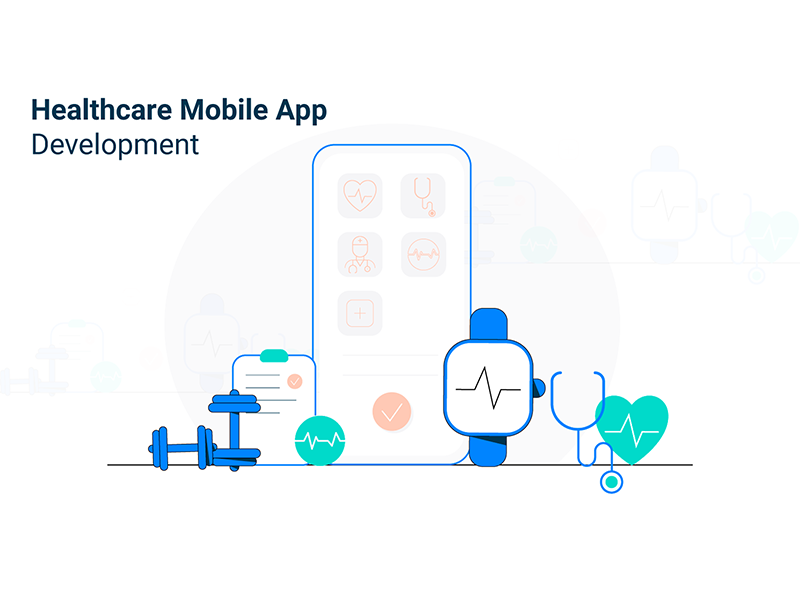
“Automation makes population health management feasible, scalable, and sustainable.”
The current state of healthcare systems needs substantial improvement, especially in the recent outbreak of Covid-19. These days, Coronavirus has infected almost 215M people, with 4.47 M deaths worldwide. It has impacted the world and its economy drastically. New health app ideas are needed to confront the situation and come up with apps for medical services.
The sector has the potential for innovative trends, like IoT, Big Data, and AI. We will talk about the sectors of the best healthcare apps and come up with some popular applications in the market. The article may give you some good health app ideas that we can turn into a robust project.
How many health apps are there in 2023?
To understand the potential of the industry in terms of business perspectives and investment, consider statistics data. For 2021, the global mHealth market was valued at $38.2 billion. From 2021 to 2028, the market is predicted to grow at a CAGR of 34,8%, registering a value of $314.60 billion. The growing penetration of smartphones, 5G technology implementation and the users’ consciousness over health issues provide an unprecedented rise in mobile healthcare technologies.
The rise of mHealth demand increased mobile apps available in the App Store and Google Play market. Thus for Q1 2021, there were 53,979 iOS healthcare apps and 53,054 apps available at Google Play.
The Benefits of Integrating Mobile Apps in Healthcare and Patient Experience
The integration of healthcare services and innovative projects with the best healthcare apps is one of the ways to prevent epidemic situations and address other, no less important medical issues.
Healthcare automation and digitalisation across most of its sectors implies benefits, namely:
- Removal of bureaucracy
- Minimisation of human errors
- Improved medical treatments
Quicker diagnosis and pre-screening processes
- Remote patient monitoring
- Cutting the operational costs
- Improvement of global health
Speeding up the provision of healthcare service
- Access to the medical service in remote
- Unified and secure medical and patient databases.
How much does a medical app cost?
Mobile health application development is related to the most complicated development processes beyond simple programming. It requires regulations, security, and support. With a rough estimation, the average cost of a health mobile app is $425.000. It is the price of an app enhanced with the latest technologies. The price, though, does not include marketing and support services.
There is no universal pricing for app development. The price depends on many factors, and even the less significant element can change the price. The main cost drivers still remain the app complexity, the app’s features, and the dev team’s hourly rate.
There are more important elements to care about with mobile healthcare apps than, for example, interactive UI/UX. More than anything, healthcare apps should be secure, stable, and user-friendly. Here is a rough estimation of app development costs led by an average-rated dev team.
| Professionals | Hourly Rate (USD) | Total Hours | Total Cost |
| Project Manager | 40 | 80 | $3200 |
| Mobile app developer | 30 | 80 | $2400-$3200 |
| Mobile app developers for continuous code review | 30 | 16 | $480 |
| QA engineer | 40 | 16 | $640 |
| Cyber Security Engineer | 40 | 16 | $640 |
| Backend Developer | 40 | 80 | $3200 |
How to Create a Mobile App for Business?
App development needs to follow six-step business planning to make your idea compatible with business perspectives and market demands:
- Developing a business strategy
- Hiring development team
- Budgeting and planning
- Defining app features
- Marketing strategy
- Support and maintenance
Which Areas and Sectors of Healthcare can Take Advantage of Innovative Healthcare Apps?
Generally, healthcare can be divided into four sub-sections. Let’s define how each unit may advance from the best healthcare apps and healthcare software development.
- Distinct Healthcare Providers and Services
These are hospitals, clinics as well as private practitioners that provide medical services and deliver goods. This category also includes general and surgical clinics and other establishments with particular medical specialisations like emergency care, family planning, nursing, and ambulatory service.
These public and private organisations can use mobile healthcare development services to build:
- patient management
- monitoring systems
- doctor schedule & management tools
- planning software
- appointment systems
- inventory management
- urgent care apps and many others.
- Medical Insurance and Consultancy Providers
These are hospitals, clinics, and private practitioners that provide medical services and deliver goods. This category also includes general and surgical clinics and other establishments with particular medical specializations like emergency care, family planning, nursing, and ambulatory service.
These public and private organizations can use mobile healthcare development services to build:
- Pharmaceutics and Drug Manufacturers
It is a huge healthcare sector that concentrates on researching and producing medication. Any drug or medicine needs to receive a license by the FDA or similar and follow a range of laws and regulations imposed by governments. This procedure may take a few years before the official drug release.
Thus, modern technologies can minimize time when the medicine is available to the mass user. The integration of healthcare automation would reduce time to the market and pharmacies.
- Medical Equipment and Hospital Supply Manufacturers
Firms and faсtories that supply healthcare providers with the necessary medical utilities and equipment fall in this category.
The innovative technologies allow for designing more effective solutions like mobile scanning and logistics applications, inventory control, pre-order and ordering platforms, etc.
Let’s now identify the technologies that can assist the healthcare sectors by removing bureaucracy, manual functions, cutting operational expenses, etc.
Best Healthcare apps in Medical Services
Medical app development that utilizes the smartphone and functionality of other smart devices provides an advanced value. To develop the software operating on iPhone devices, applying specific tech stacks and following the platform guidelines is necessary. The same applies to the Android operating system.
To build an iOS or Android client app, it is necessary to use Swift and Kotlin programming languages. Applying technologies like Node.js, Python, Ruby, cloud-service platforms of AWS, EC2, S3, and PostgreSQL or MySQL databases is possible for the back-end developments and server setups.
Here are some of the apps popular in the market.
Doctor On Demand - Telehealth app
This app provides care on demand and by appointment. It is an iOS and Android app and is used in various physical and mental healthcare services.
Heal - Doctor house calls
HealpersonalisedWhen is an app to arrange a house call. It also applies to iOS and Android platforms.
Maven - Woman’s healthcare
Maven is designed for women and families. It is a kind of “digital clinic” where women and their families can turn for physical and mental health issues.
Fitbit - Activity tracker
This app allows us to monitor the state of health, including heartbeats, calories, fitness time, etc.
Healow - Health records management
Healow is the main communication tool between patients and their doctors. It records data and allows access to healthcare records.
MyChart - Patient portal
This app is also used for communication, allowing access to records, online scheduling, and paying the bills.
UpToDate - Educational portal
This app is designed for doctors and students—a powerful platform with vast medical information. Students and practitioners can have access to expert opinions.
Sonosupport - Ultrasound imaging support
This app is designed for ultrasound examinations. With the use of the app, it is possible to get clinical-grade ultrasound diagnostics at home.
Talkspace - Therapy
The online therapy platform gives access to psychiatrists and therapists for consulting and treatment via smartphone.
First Derm - Dermatology Services
The free app helps users connect to doctors, consult online, and get treatment and prescriptions for non-emergency skin issues.
Amwell - Insurance coverage
The application provides on-demand doctor visits and accepts health insurances, including United Healthcare, Aetna, Blue Cross Blue Shield, and more.
ZocDoc - Appointment scheduling
The application connects patients with different medical institutions to schedule appointments without calling or visiting to set an appointment.
GoodRx - Prescription discounts
It is a huge prescription database with over 75.000 medications where users can search for information and find the lowest medicine price in the area.
Medisafe - Medication reminder
With the app, the patients will never forget to take their prescriptions. Virtual pillbox sends reminders and notifications for taking medications.
Teladoc - On-demand Care
On-demand Telehealth service is an affordable way to connect to physicians and get virtual care for non-life-threatening cases.
WebMD - Medical resource
It is one of the largest medical resources and information databases that gives access to care directories, a database of medications, etc.
Generis - DNA & Nutrition
This innovative solution helps users understand their genes. The app provides DNA-based recommendations: food and nutrition, fitness advice, supplement recommendations, etc.
Better Help - Online consulting
It is a quick and cost-efficient way to access mental health professionals. The application is a convenient way to get online help from professional therapists and counselors.
MDacne - Acne treatment
The application is instant access to dermatologists and gets instant treatment based on the patient's answers, photos and videos. The app has a built-in chat to provide better communication between patients and doctors.
Leafly - One-stop-shop for cannabis information
The application’s main function is to connect doctors and patients, shed light on medical Marijuana properties, and educate users.
MySugr - Diabetes tracker
The lifesaver helps patients track blood sugar, carbs, estimated HbA1c and bolus within an app. With synchronized and updated data, it is easy to track changes and take actions if necessary.
EyeCare Live - Online consulting
The application is useful to get instant consulting on eye conditions through pictures and videos. Through visuals, the doctor can resolve the condition and advise treatment.
Heal - Physician house calls
The application is aimed at bringing back the traditional doctor’s visits. The holistic view will help doctors observe the lifestyle of a patient that may help in further treatment.
Factors to Consider When Building a Healthcare Mobile App
As one of the growing industries witnessing a boom of mobile integration, every new startup is entering a highly competitive market with global players that use the latest mobile and smart tech solutions. To be in line with global players, there are top factors to be considered when building an app.
- Integration of Medical Things
The IoT may be utilized in any health-related area by uniting medical hardware and software. The system uses different sensors and processors to collect data and share it across the network. The technology can connect not only with one device but also it is possible to create a complex ecosystem of interrelated tools and gadgets.
In the upcoming years, the implementation of IoT solutions is expected to grow, which is a subject of healthcare software development. Statista states that in 2020 almost 161 million IoT devices will be delivered and used.
When wearable devices, home medication dispensers, personalized trackers, digital cameras, and other medical equipment are interconnected, it will result in the next-level healthcare service, as stated by Forbes.
Vitals trackings, efficient operations in inventory management, treatments of chronic diseases, telehealth surgeries, built-in emergency response systems, and mood trackers are just a few directions where IoMT software can be implemented.
- Big Data
It makes no doubt that the healthcare industry holds and processes huge masses of different information. Big Data allows for effective collecting and elaboration of internal medical documentation and patient data (EHR & EMR).
These operations surely remove bureaucracy among healthcare providers, improve patient diagnostics and care, and add value to medical research and the field of analytics.
Machine Learning and Artificial Intelligence
Advancements in language processing technology create and apply chatbots, voice recognition systems, voice assistants, etc. It is only the beginning of the story related to machine learning use cases. Automated healthcare operations with the help of ML and AI will bring user experience to the next level.
- Blockchain
Blockchain technology is widely known due to the Bitcoin cryptocurrency. However, it is a great solution to provide top security and transparency levels within the healthcare industry. The technology removes paperwork and offers fast and secure information sharing.
How can Addevice Help you Build a Healthcare Mobile App?
Still not sure about your health app ideas? The team of Addevice is an experienced offshore software provider that designs and develops top-notch healthcare applications based on IoT and AI. We create solutions for fitness and a healthy lifestyle, patient portals, and doctor-on-demand projects. Our team can also integrate and gain data from 100+ medical devices and 3rd party services to build a complex app functionality.
As an example, Addevice has projected and implemented Sentinel hypertension medical care application. The app aims to help patients with hypertension have safe life keeping health data under control. The application provides clinicians with real-time patient data, medication, and symptom management.
Mobile Technology in the Healthcare Industry, Medical Apps, healthcare in mobile, medical mobile apps, medical apps development, Healthcare Applications, Mobile Medicine, Medical Personnel, Hybrid Apps, Build an App Like Uber
Develop Your Mobile Health App
Transform healthcare experiences with your own mobile health app
Our Expertise Covers:
✅ Telemedicine and virtual consultations
✅ Electronic health records integration
✅ Medication tracking and health monitoring features
Table of contents
FAQ
Mobile health application development is related to the most complicated development processes beyond simple programming. It requires regulations, security, and support. With a rough estimation, the average cost of a health mobile app is $425.000. It is the price of an app enhanced with the latest technologies. The price, though, does not include marketing and support services.
The rise of mHealth demand increased mobile apps available in the App Store and Google Play market. Thus for Q1 2021, there were 53,979 iOS healthcare apps and 53,054 apps available at Google Play.
App development needs to follow six-step business planning to make your idea compatible with business perspectives and market demands:
- Developing a business strategy
- Hiring development team
- Budgeting and planning
- Defining app features
- Marketing strategy
- Support and maintenance
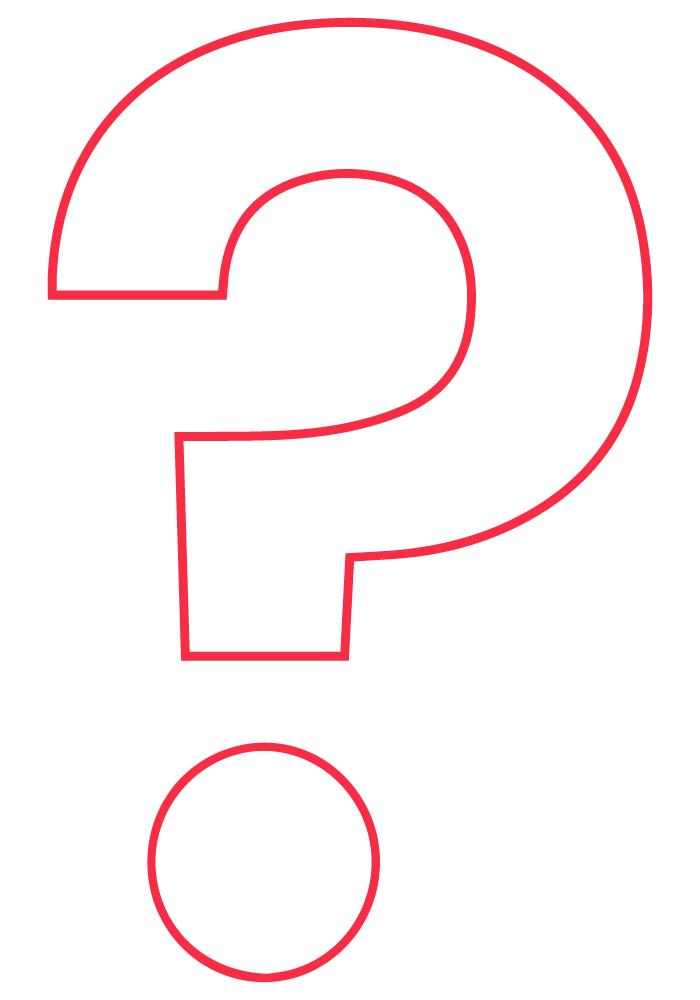
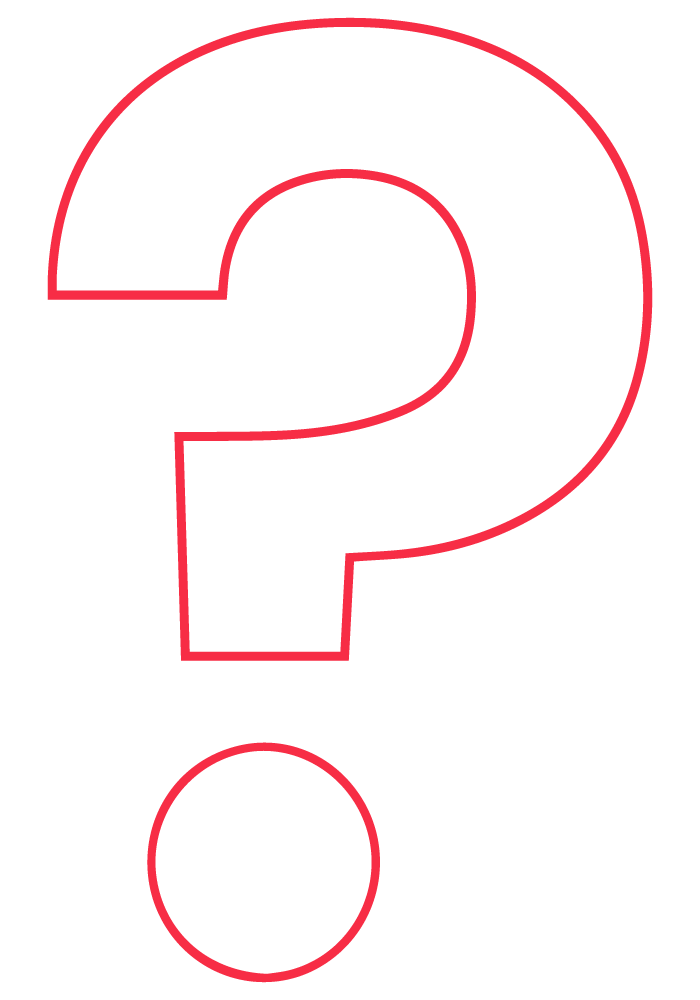
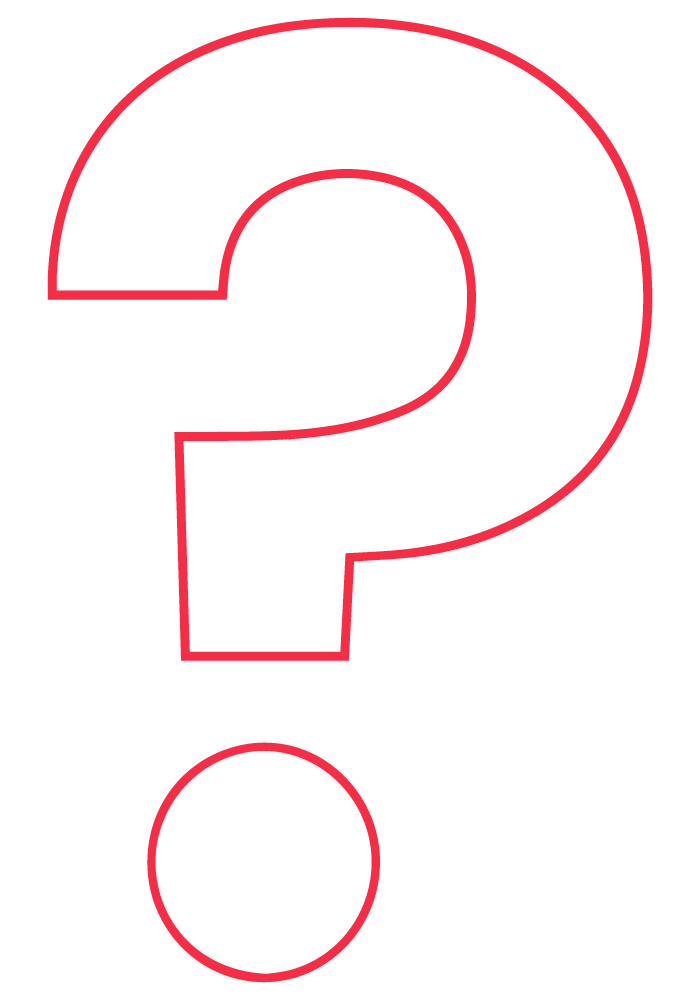
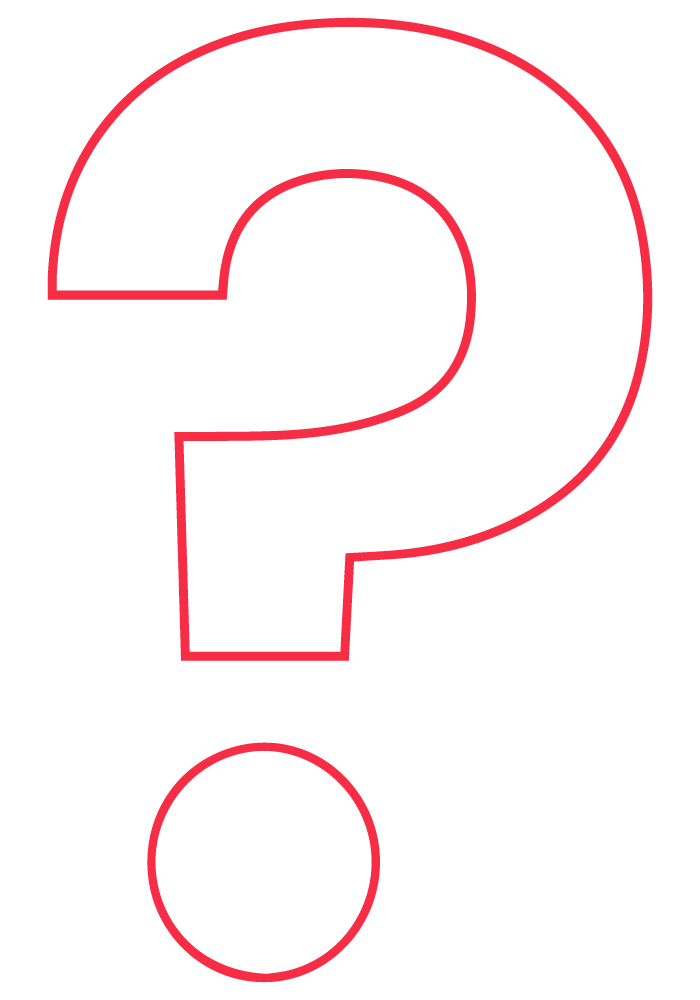
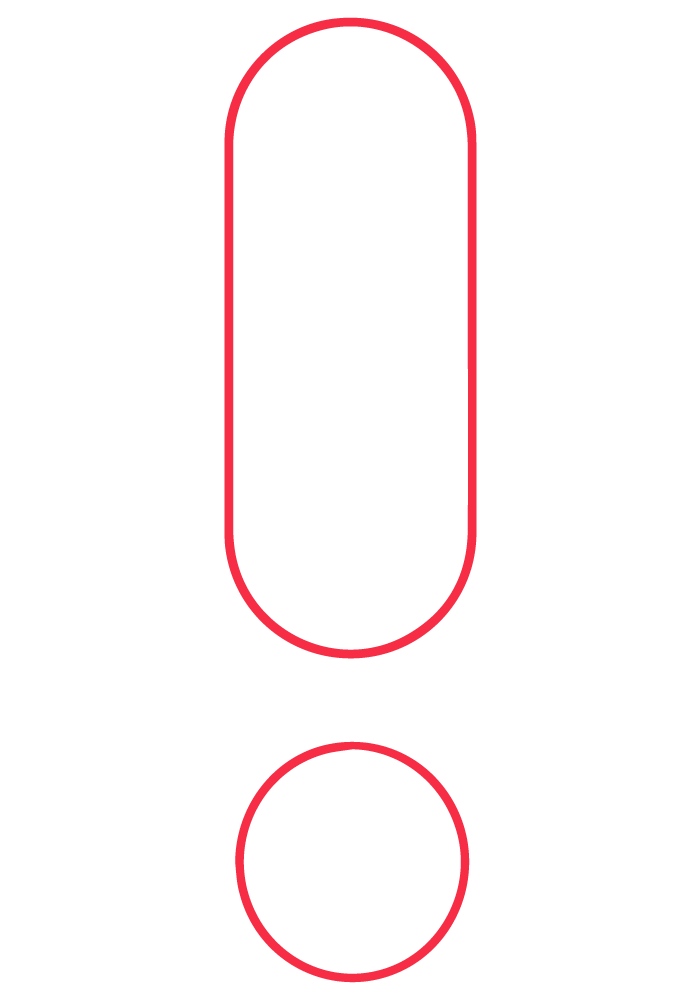
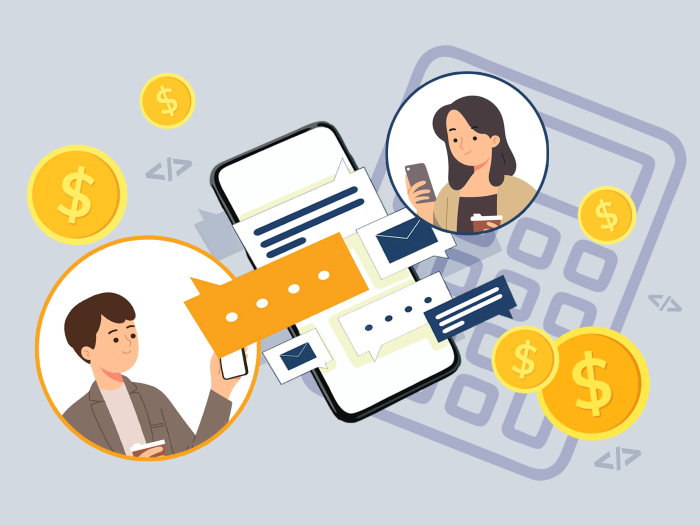 How Much Does It Cost to Build a Messaging App?
How Much Does It Cost to Build a Messaging App?
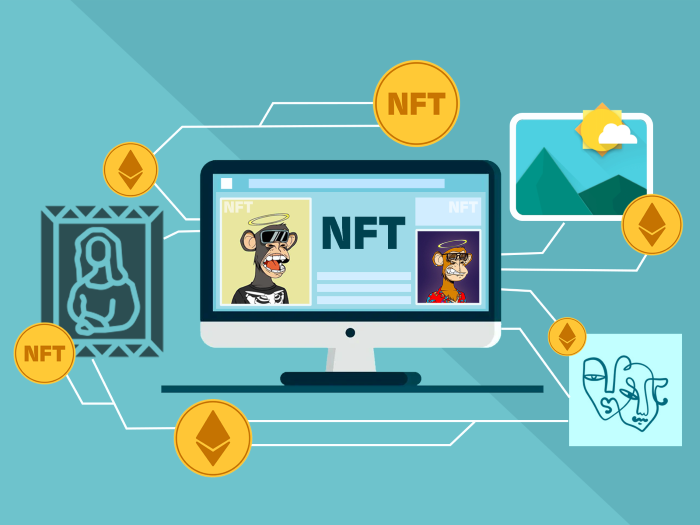 How to Create an NFT Marketplace: Development Guide
How to Create an NFT Marketplace: Development Guide
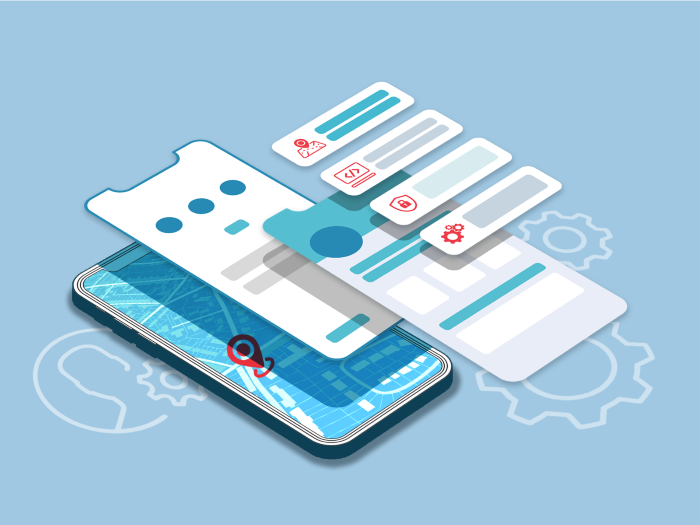 Must-Have Uber App Features: Building a Ridesharing App
Must-Have Uber App Features: Building a Ridesharing App